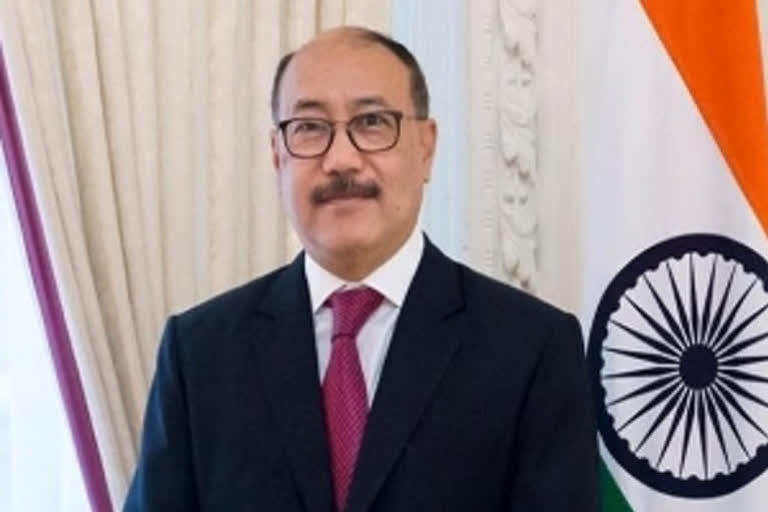New Delhi: India's Foreign Secretary Harsh Shringla on Tuesday aiming at China and Pakistan said that some states are leveraging their expertise in cyberspace to achieve their political and security-related objectives and indulge in contemporary forms of cross-border terrorism. Addressing at the UNSC high-level meeting on Cyber Security-under Estonian Presidency, Shringla said, "States are leveraging their expertise in cyberspace to achieve their political and security-related objectives and indulge in contemporary forms of cross-border terrorism".
"The world is already witnessing the use of cyber tools to compromise State security through, inter alia, attacking critical national infrastructure, including health and energy facilities; sometimes disrupt social harmony through radicalization. Open societies have been particularly vulnerable to cyber-attacks and disinformation campaigns", he added.
Shringla further pointed out that while the meaning of peace has remained constant since the establishment of the Security Council, the nature of conflict and its underlying tools have transformed tremendously over the decades. Today, we are witnessing growing security threats to the Member States emanating from cyberspace, which can no longer be ignored, he reiterated.
"The dynamic and continuously evolving feature of cyberspace has also brought cybersecurity into the discourse of peace and security. The borderless nature of cyberspace, and more importantly anonymity of actors involved, has challenged the traditionally accepted concepts of sovereignty, jurisdiction and privacy. These unique attributes of cyberspace present their own set of challenges for the Member States. I will focus on three key challenges in my intervention", he pointed out.
Also Read: UN body ranks India at 10th place in cyber-security commitment
Foreign Secretary Shringla further underscored India's commitment to an open, secure, free, accessible and stable cyberspace environment, which will become an engine for innovation, economic growth, sustainable development, ensure free flow of information and respect cultural and linguistic diversity. "With our transformative technology initiatives in recent years such as India Stack, Aadhar and UPI, we have successfully leveraged the tremendous potential of cyber technologies in implementing the SDG agenda and improving governance", he added.
In his remarks, Shringla further noted that the world is witnessing a sophisticated use of cyberspace by terrorists around the world to broaden their appeal, spread virulent propaganda, incite hatred and violence, recruit youth and raise funds, adding that, "terrorists have also used social media for planning and executing their terror attacks and wreaking havoc. As a victim of terrorism, India has always underlined the need for Member States to address and tackle the implications of terrorist exploitation of the cyber domain more strategically".
Also Read: At high-level meet, PM Modi holds discussions on futuristic challenges in defence sector
Shringla also raised the issue of the compromise of "integrity and security of ICT products," which he said formed the "building blocks of cyberspace". "The integrity and security of ICT products, which form the building blocks of cyberspace, are being compromised. There are widespread concerns that State and Non-State Actors are introducing vulnerabilities and harmful hidden functions, including through backdoor channels, into ICT networks and products", he stated.
Such nefarious acts undermine trust and confidence in global ICT supply chains, compromise security and create potential flashpoints between States. It is in the interest of the international community to ensure that all actors abide by their international obligations and commitments and not indulge in practices that could have potentially disruptive effects on global supply chains and trade in ICT products, said Shringla.
Also Read: Oil prices 'very challenging', need them to sober a bit: India to OPEC



